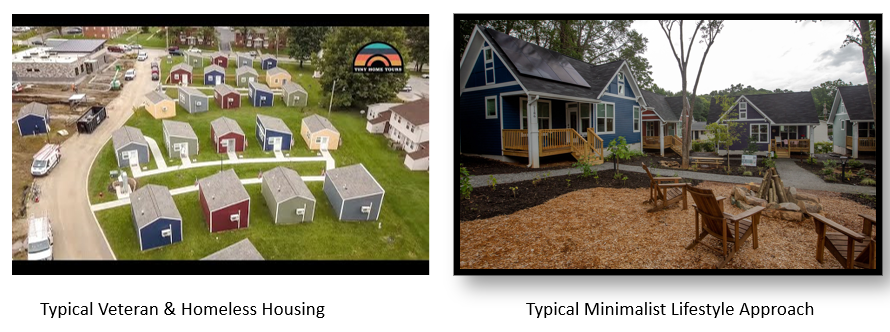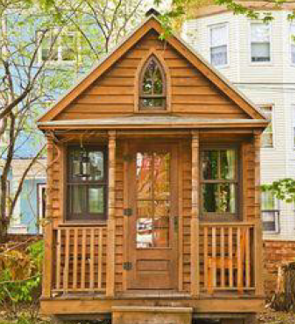The Augusta Commission is responding to citizen’s requests and could vote on an ordinance allowing for “tiny homes” at its next meeting Tuesday.
The proposed ordinance, as outlined by Interim Planning and Zoning Director Carla Delaney, defines a tiny house as an on-site built structure or modular (pre-fabricated) home. Recreational vehicles and homes built on a movable chassis do not qualify under the ordinance.
Tiny homes can come in two varieties — luxury homes built for people seeking the “minimalist lifestyle” and homes built specifically for the homeless and at-risk veterans, she said.
MORE: Richmond County School Board plans to raise property taxes
The “minimalist lifestyle” homes would be roughly 450 square feet and come with a price tag of around $250,000. The homes meant to house the homeless and veterans would be much smaller with about 150 to 200 square feet and cost from $107,000 to $150,000.
Delaney said that the Planning and Zoning Department had identified three “zones” that will allow for the tiny homes, but she did not elaborate on exactly where those zones were or exactly what type of permit would be needed to create a tiny home village.

“We would need to adopt a special exemption, and they would have to come before the commission to avoid eroding the fabric of our community. It would have to be a special exception and never just by right,” Delaney said.
The issue of vehicular parking would also have to be taken on a case-by-case basis. The renderings presented do not show any room for parking and earlier drafts show parking only for bicycles or motorbikes.
The presentation also did not include any information as to how the homes would conform to Americans with Disabilities Act requirements.
MORE: Homeless Task Force addresses HUD policy priorities
Unlike a small home constructed on the property of a larger residence, or so called “mother-in-law homes,” the ordinance would have a village of around eight tiny homes placed on one lot.
The issue of who exactly would pay to create these homes was also left vague.
Delany said private builders would be primarily responsible for building the higher-end, minimalist homes and that the homes would be purchased by the occupants on the private market.
However, when it came to tiny homes for homeless and veterans, Delaney only said that the occupants would not be responsible for paying for the construction and that perhaps a quasi-governmental organization would be responsible for building and maintaining the homes.
When pressed, Delaney said that perhaps “donations” could be used to construct the homes, which left the door open to allowing the homes to be built at tax-payers expense.
Scott Hudson is the senior reporter for The Augusta Press. Reach him at scott@theaugustapress.com










